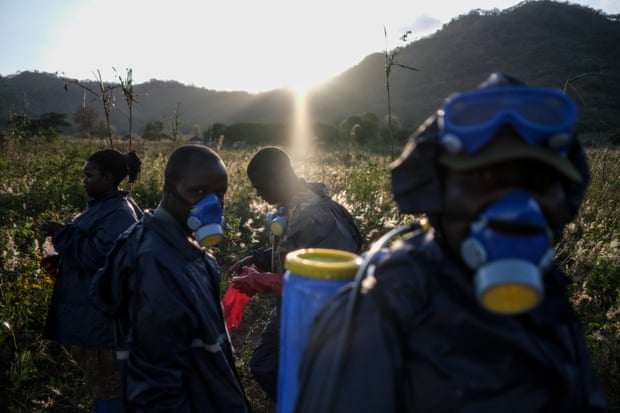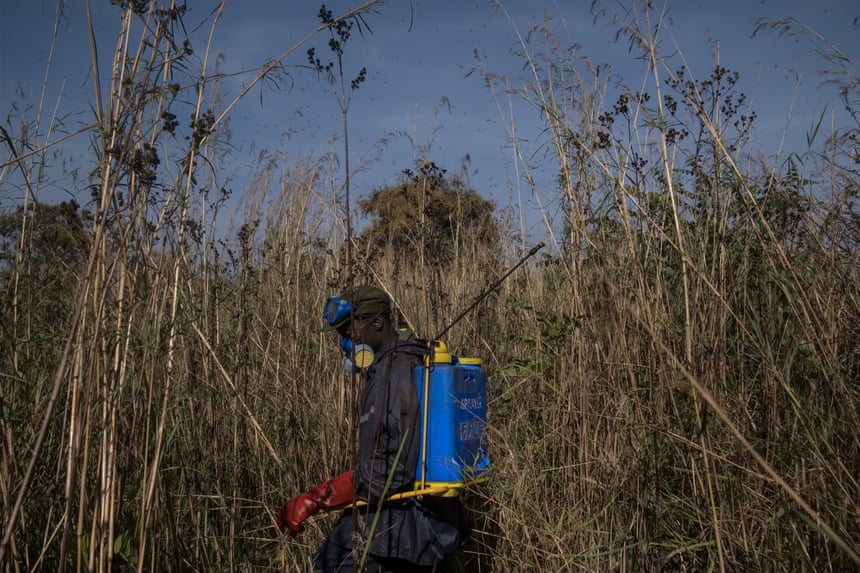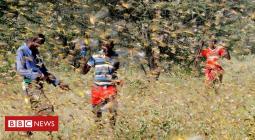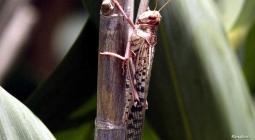Uganda's 'locust commander' leads the battle against a new enemy.
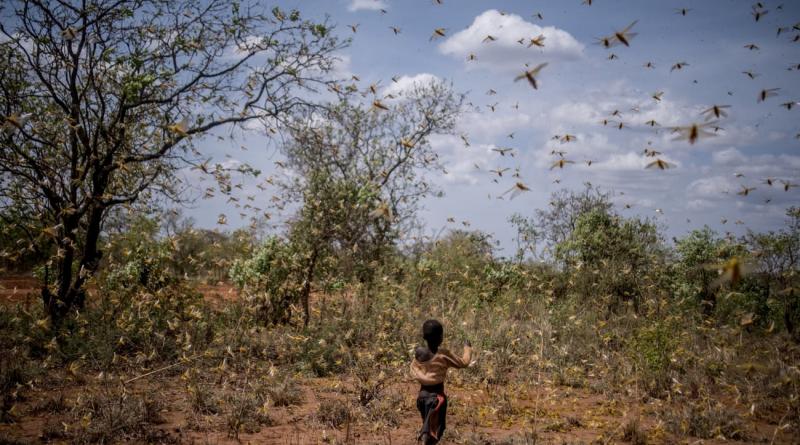
The army has been called in to eliminate the insects swarming across Africa, but their mission is dangerous and unending
Sitting at a plastic table in the garden of Timisha hotel in Soroti, eastern Uganda, Major General Samuel Kavuma takes a drag of his cigarette and looks down at his phone, which has barely stopped ringing for the past hour.
A military figure for nearly 40 years, Kavuma fought the Lord’s Resistance Army insurgent group. Now, he’s become the “locust commander”, the man leading the fight against the country’s worst locust outbreak in decades.
Swarms of locusts – billions in total – have spread to eight countries in east Africa, after they crossed the Red Sea from Yemen at the end of last year. The insects can travel roughly 90 miles a day and eat their own body weight in crops. The UN has warned the locust swarms could increase 500 times by June, posing a major threat to the region.
Footage shows desert locusts swarming a region in Uganda – video
In response, Uganda has deployed its army.
Kavuma, 59, doesn’t know why he was put in charge, but he sees the locusts as a formidable enemy.
“When we started two weeks ago we did not know much about these creatures,” Kavuma says. “Now I am a professor. I know how they behave, the pattern of their movements.”
Locusts are highly mobile, he notes. “[But] after 6.30pm or 7pm they don’t move, they don’t fly at night.”
That gives him time to focus operations. Between 7pm and 9pm Kavuma verifies information from civilians who have spotted locusts in their neighbourhoods, and deploys troops. Dozens of soldiers travel through the night, so they can begin spraying pesticide before sunrise.
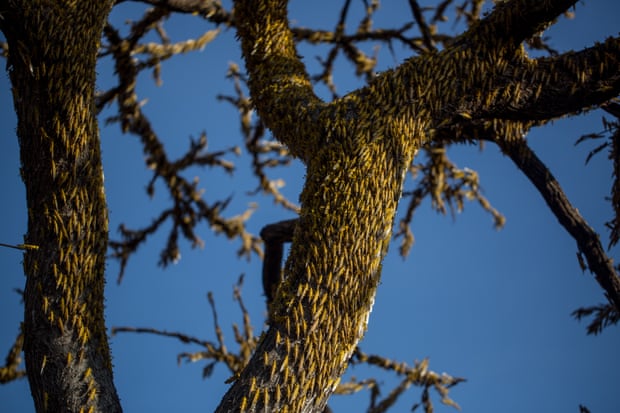
“They are dormant, they are confused, they are very drunk,” a soldier replies, arguing that it takes time for the locusts to die. “But there’s not enough manpower. And when we can’t spray high enough, they get away.”
Other soldiers complain that their masks don’t work, that the protective gear is ripped, and that they are exhausted. “Transport is a problem,” one says, describing the cramped trucks they are moved around in, too packed to sleep. Some of their backpacks leak, dripping pesticide down the legs of soldiers as they spray.
Watching the commotion is a local farmer and mother of six children, Abonyo Shantina, who says she is grateful for the fast military response. The 40-year-old, who grows maize, sorghum, millet and cotton, is worried about the locusts spreading. “We will suffer,” she says. “I’ll struggle to look for food for my children.”
Charles Kama, a 54-year-old civil servant in Kitgum, drives out a water tank to help with the operation. “I think the war has started,” he says. “The locusts will be defeated because I’ve seen the effort [the military is] making.”
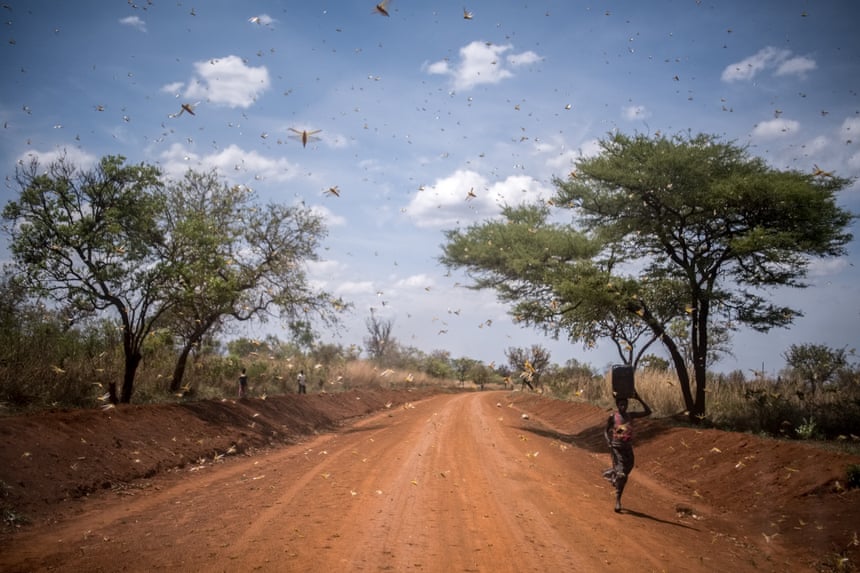
“This is a crazy situation but thank God we shall fight it slowly,” says Abitegeka Gerald, a commander in the Ugandan Wildlife Authority, sitting in the front of a military truck as it ploughs through crops to a new position, yellow locusts smashing against the windscreen. Later, he stands in the middle of soldiers shouting orders, holding a plastic bag of live locusts he says he will present to his seniors to show the job has been done.
By 10am, the operation winds down.
Gerald calls it a “successful” morning, though as he talks clouds of locusts continue to fly in circles behind him. “By coming here very early we made sure that we did a massive job of killing … We are making sure that we deter them before they spread all over the country.”
Still, he says, they need assistance. “We are thin on the ground in fighting these locusts. You saw the big swarms, you saw our gadgets and equipment, we definitely need help.”
*Title Photo : Desert locusts have invaded Uganda from Kenya, causing panic among farming families
**Photographs by Edward Echwalu for the Guardian
26 February 2020
The Guardian

